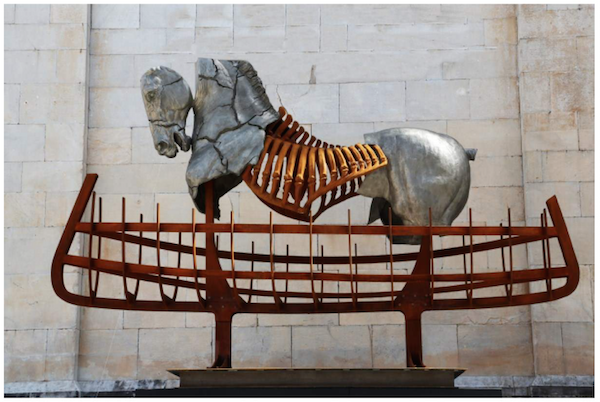On May 2, Gustavo Aceves's traveling exhibition "Lapidarium" comes to the Brandenburg Gate in Berlin, to mark the 70th anniversary of the end of WWII in Europe.
The public sculpture exhibition examines the pertinent contemporary issue of migration. The Mexican artist has installed 22 monumental marble and bronze horse statues in front of the German capital's most recognizable landmark.
Each statue is fractured, cracked, and unfinished in appearance. Some appear skeletal and include human skulls within them, a reminder of the migrants that perished en route to their destination.
The title Lapidarium is derived from the Latin word for a place where archaeological items such as stone monuments or fragments are exhibited. Aceves thereby established an association between the fragmented artworks and our shared history and past.
After leaving Berlin on May 10, the exhibition will travel to further landmarks around the world between 2015 and 2017, evolving with each time it is exhibited.
The public sculpture exhibition examines the pertinent contemporary issue of migration. The Mexican artist has installed 22 monumental marble and bronze horse statues in front of the German capital's most recognizable landmark.
Each statue is fractured, cracked, and unfinished in appearance. Some appear skeletal and include human skulls within them, a reminder of the migrants that perished en route to their destination.
The title Lapidarium is derived from the Latin word for a place where archaeological items such as stone monuments or fragments are exhibited. Aceves thereby established an association between the fragmented artworks and our shared history and past.
After leaving Berlin on May 10, the exhibition will travel to further landmarks around the world between 2015 and 2017, evolving with each time it is exhibited.

No comments:
Post a Comment